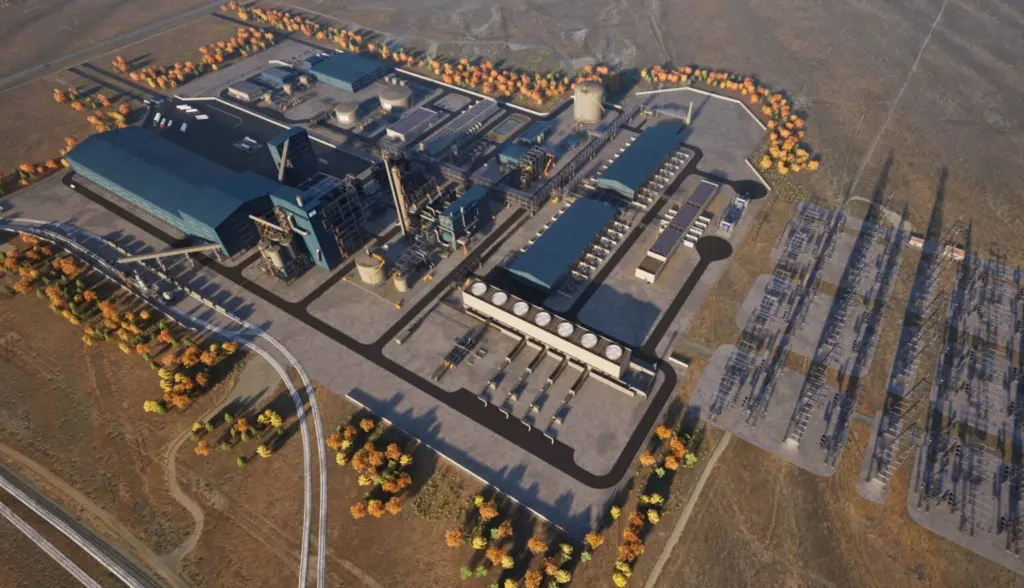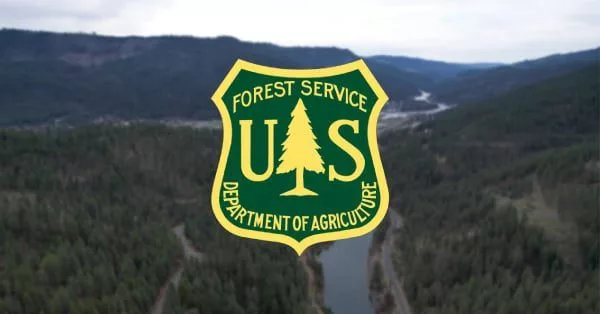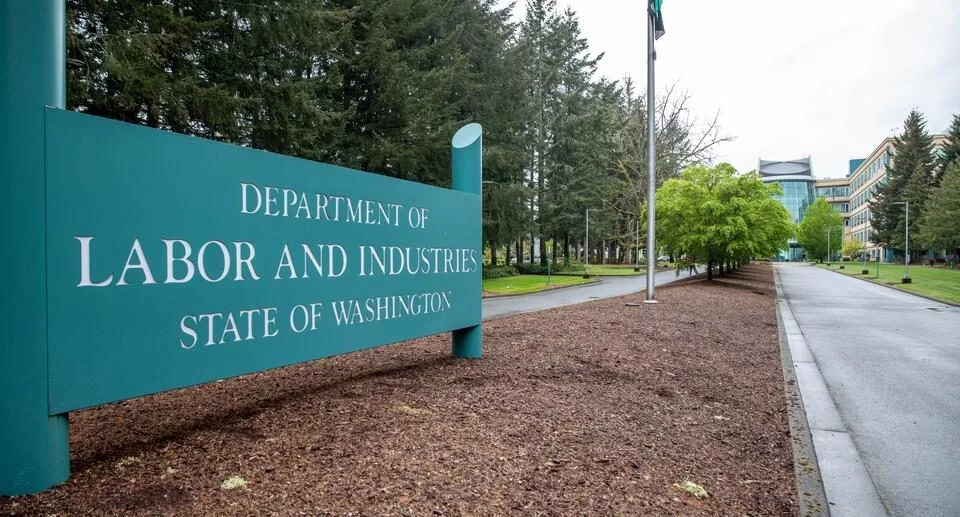OLYMPIA, WA – The Trump administration on Wednesday nixed funding for the Pacific Northwest Hydrogen Hub and several hundred other federally-subsidized clean energy projects in Democratic-led states.
Democratic politicians from Oregon and Washington state immediately cried foul and vowed to challenge what they called an “illegal” clawback of Congressionally-directed spending.
The tri-state Northwest hydrogen hub launched last year to funnel up to $1 billion in federal taxpayer funding to the region to kickstart production and use of zero-emissions hydrogen fuel. Private industry, truckmakers, transit and seaport partners were to bring large sums to the table in matching funds over the next eight to ten years.
But Trump administration officials voiced deep skepticism about climate and green energy initiatives championed by the previous Biden administration.
In a social media post Wednesday, White House Office of Management and Budget Director Russell Vought celebrated the cancellation of nearly $8 billion in what he called “Green New Scam funding to fuel the Left’s climate agenda.”
A follow-up news release that went out under Energy Secretary Chris Wright’s name said that his agency determined the cancelled projects did “not adequately advance the nation’s energy needs, were not economically viable, and would not provide a positive return on investment of taxpayer dollars.”
The Pacific Northwest Hydrogen Hub attracted bipartisan support locally as a means to create new jobs and meet climate goals, particularly in sectors that are proving difficult to convert directly to clean electric power. Washington Democratic Sen. Patty Murray blasted the Trump administration in a statement for playing “some sort of sick political game” on the first day of the partial government shutdown.
“This administration has had plans in the works for months to cancel critical energy projects, and now, they are illegally taking action to kill jobs and raise people’s energy bills,” Murray said.
In total, the Trump administration pulled funding for 223 clean energy projects in 16 states. Political observers quickly noted that nearly all of the cancelled projects were in states that voted for former Vice President Kamala Harris in the last presidential election.
“This is a blatant attempt to punish the political opposition, but this won’t just hurt Democrats – it’ll hurt regular people just trying to get by, in red districts and blue districts alike,” Murray said. “I will be standing firm against this corrupt abuse of power – and every Republican should think carefully about what precedent they want to set by allowing this weaponization of taxpayer dollars.”
Democratic Gov. Bob Ferguson said in a prepared statement Thursday that his office was working with state Attorney General Nick Brown to “fight this illegal action.”
Ironically, the majority of the hydrogen production infrastructure for the Northwest hub project was to be built in counties that voted for Trump, such as Benton and Lewis counties in Washington, Baker and Morrow counties in Oregon, and the St. Regis, Montana area.
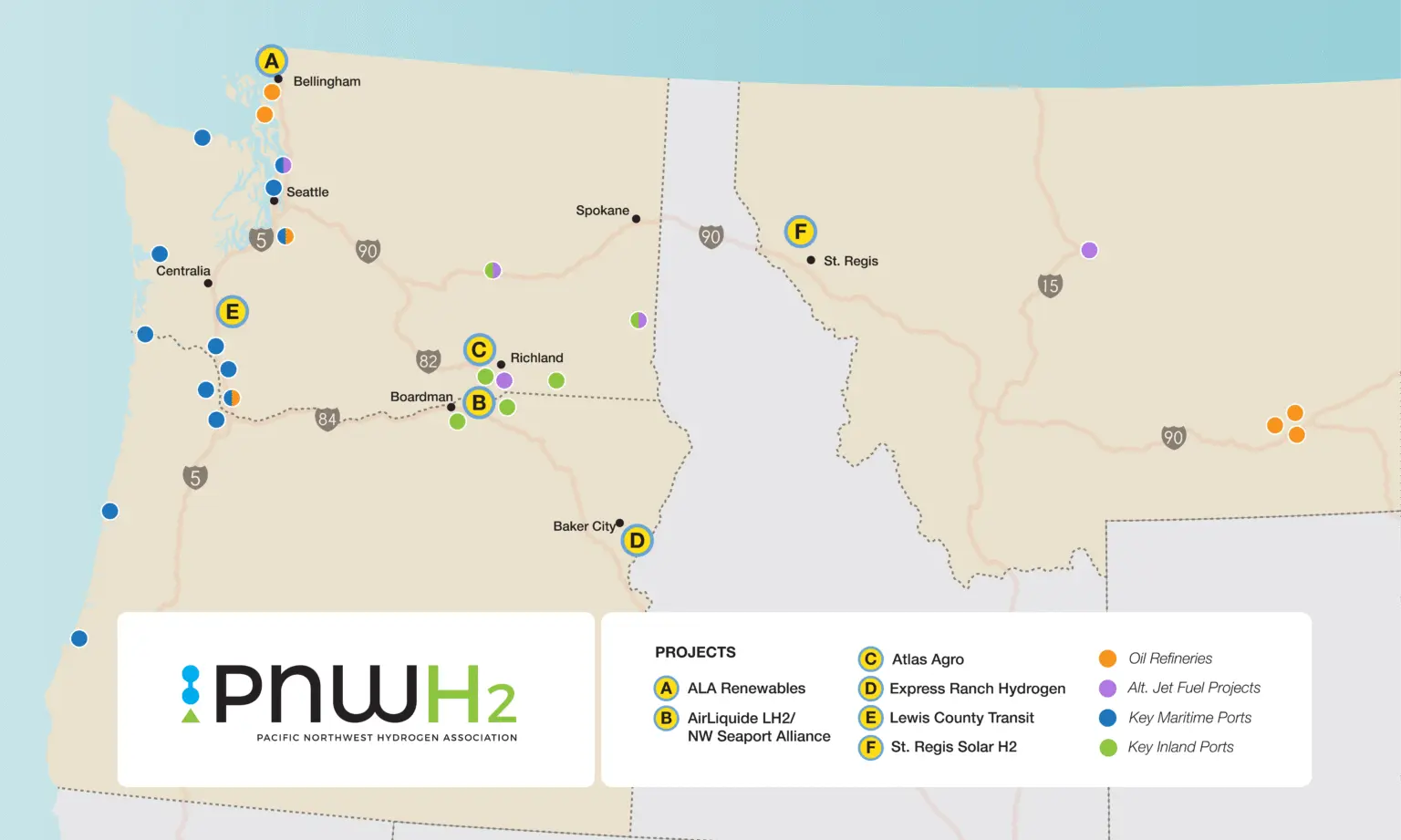
The Trump administration Wednesday also cancelled the California clean hydrogen hub known as ARCHES, but left in place the funding for five other nascent hubs selected in a highly competitive national contest overseen by Biden’s Energy Department in 2023.
Most of the surviving hubs align more closely with the current administration’s energy priorities by producing hydrogen from natural gas with carbon capture or by using nuclear power.
Smaller, but not really small, clean energy grants pulled too
A $250 million project to upgrade power transmission lines on the Warm Springs Reservation in central Oregon was also reportedly on the list of federal grant terminations. The project was meant to increase capacity to transmit renewable electricity generated in central Oregon to customers in the Willamette Valley. A spokesperson for Portland General Electric, the transmission line’s owner, was unsure Thursday whether the utility had received a formal grant termination notice.
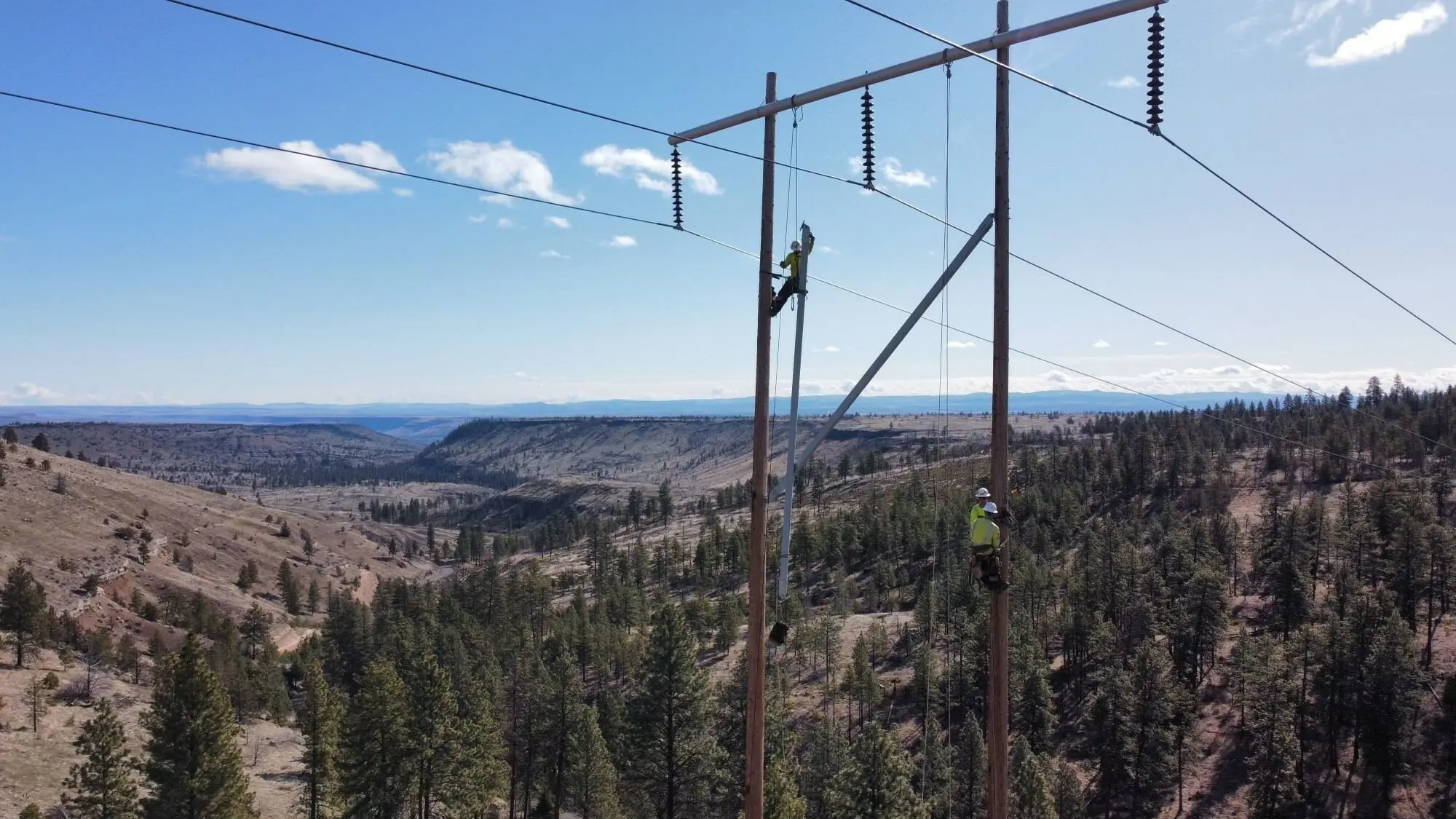
Aggrieved Democratic Congresswoman Suzan DelBene, D-Medina, shared a list of other project cancellations, which included four Department of Energy grants to Washington State University for solar energy and vehicle technology development, totalling nearly $10 million.
The termination list also noted a bigger – nearly $68 million – hit to Bellevue, Washington-based truck maker PACCAR, which was to receive assistance for developing and manufacturing cleaner semi trucks.
Further down the casualty list was a $10 million award to CleanFiber to help that company build a new factory in Chehalis, Washington, to turn recycled cardboard into home insulation.
The Department of Energy said the sponsors of terminated projects have 30 days to appeal their canceled funding. Some recipients have already started the appeal process, according to the department.
Big investments near Bellingham and Richland now in doubt
The biggest single component within the Northwest hydrogen hub was a planned $1.5 billion green fertilizer factory near Richland, Washington, which was to produce hydrogen on site as a key ingredient. Switzerland-based Atlas Agro has already started permit applications for the big plant and lined up customers.
Close behind in terms of investment and scale, Calgary-based AltaGas had a plan to redevelop the closed Intalco aluminum smelter near Ferndale, Washington, to produce climate-friendly hydrogen for refinery use, transportation fuel and possibly power generation.
It’s unclear what happens now. Both corporate boards had postponed making final investment decisions because of the uncertainty about federal subsidies and tax credits.
“Our investment in the Intalco lands remains a priority. We will continue to explore development opportunities that align with our values and deliver lasting benefits to the region,” said Andrea McNamara Doyle, Washington state external affairs manager for AltaGas, in an emailed statement.
Other smaller participants in the PNWH2 Hub had plans to build green hydrogen fueling and distribution infrastructure. Those outfits joined the hub to receive subsidies for design, construction and startup costs.
Plans included hydrogen refueling stations for big trucks along Interstate 84 in Eastern Oregon and on I-90 in far western Montana as well as hydrogen fuel cell transit bus expansion in southwest Washington.
There were signs of trouble for the hub prior to this week – consequences of the slower-than-expected emergence of demand for hydrogen fuel and the high cost of production. A half dozen energy developers exited from various projects that were originally included in the Northwest hydrogen hub’s federal funding proposal. Notable names to get cold feet over the past year included Fortescue, Portland General Electric, Mitsubishi Power, First Mode and Puget Sound Energy.
Prospective large-scale clean hydrogen producers Fortescue, Atlas Agro and AltaGas were also having a hard time locating affordable sources of renewable electricity in the quantities needed to split water molecules to make pure hydrogen.
In a late Wednesday email to project partners, Pacific Northwest Hydrogen Hub President Chris Green lamented the short-notice termination and uncertainty it created, but tried to close on a positive note.
“Whether or not this grant funding remains, I’m encouraged that the trail is now blazed for more development and projects to be delivered in this market and that there will be a bright future for H2 as a highly successful and lucrative energy product in the future in our region,” Green wrote.
Oregon Capital Chronicle reporter Alex Baumhardt contributed to this story.
Washington State Standard is part of States Newsroom, a nonprofit news network supported by grants and a coalition of donors as a 501c(3) public charity. Washington State Standard maintains editorial independence. Contact Editor Bill Lucia for questions: info@washingtonstatestandard.com.

